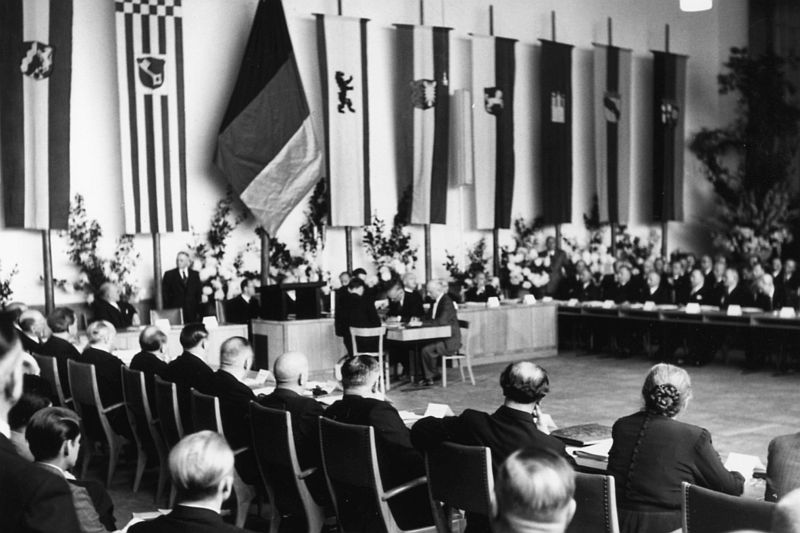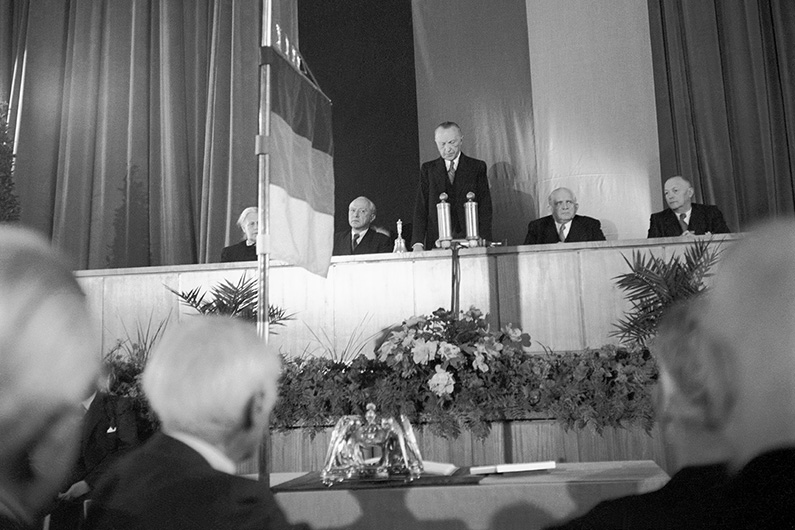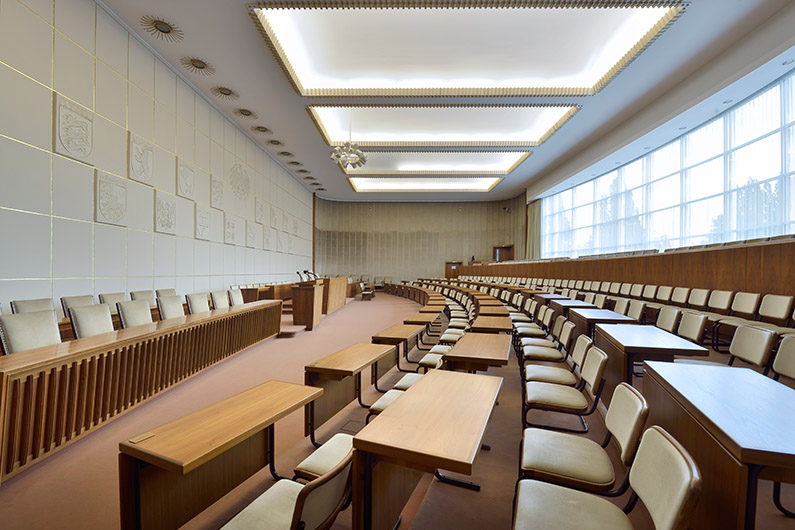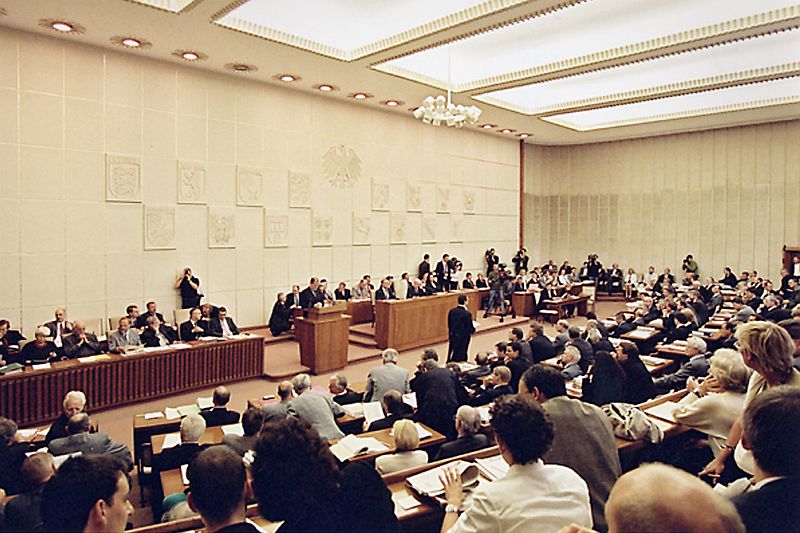It was thanks to the efforts of the head of the Dusseldorf State Chancellery, Hermann Wandersleb, that the Parliamentary Council ended up holding its sessions in Bonn. As early as 1947, he established a course on governance at a teachers training college known as the Pedagogical Academy. Thus, in the summer of 1948, Mr. Wandersleb suggested that the Parliamentary Council meet at the Akademie. In a telephone vote of the Minister Presidents on 13 August 1948, eight out of eleven voted in favour of Bonn, with Karlsruhe, Frankfurt and Celle receiving no votes at all.
It wasn’t long before Mr. Wandersleb was nicknamed Bonnifacius. The university city on the Rhine even prevailed against a competing applicant when, in 1949, the Parliamentary Council voted on the location of an interim German capital. When, on 10 May of that year, the Council voted on the question, 29 members voted for Frankfurt, but Bonn received 33 votes. And on 3 November 1949, when the Bundestag (Lower House of Parliament) voted on the question again, a majority of the members of Parliament (200 out of 376) voted in favour of remaining on the Rhine for the time being.
The Pedagogical Academy (1930–1933), a clean-lined white Bauhaus building designed by Martin Witte, housed the Bundesrat for decades to come. The Bundesrat enables the federal-state governments to have a say in federal legislative and administrative policies. The inaugural session on 7 September 1949 began with this quote from the German poet and philosopher Friedrich Schiller: “The establishment and structure of true political freedom is the most perfect work of art.” The session lasted a mere 41 minutes, including an orchestral performance.
The Bundesrat was evidently pleased with the venue. In the wake of the Bundestag’s June 1991 decision to relocate the capital of a newly reunited Germany to Berlin, the Bundesrat voted to remain in Bonn for the time being. Its members now had 16 coats of arms on the wall behind the rostrum, thanks to Germany’s five new federal states.
But in 1996, the federal-state delegates did in fact decide to relocate to Berlin. The last session of the Bundesrat was held on 14 July 2000. This historic site now houses the Haus der Geschichte der Bundesrepublik (Museum of the History of the Federal Republic of Germany), which has a permanent exhibition on "The German Basic Law".



